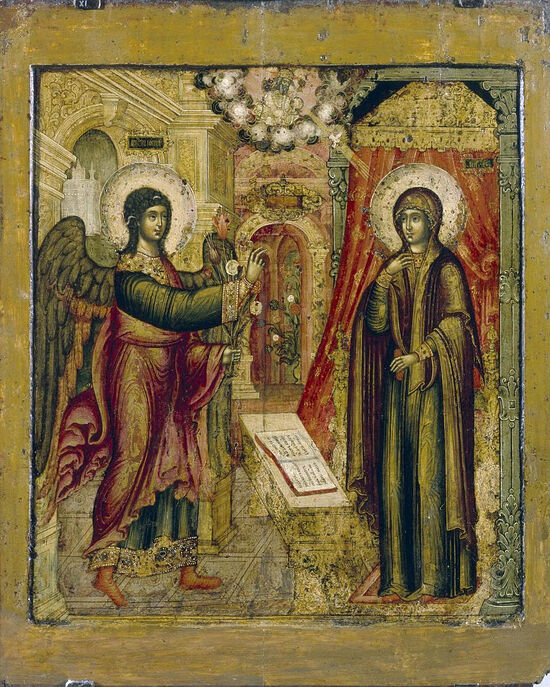 Photo: priroda.inc.ru
Photo: priroda.inc.ru
The Gospel reading now presents us with a wonderful conversation between the Archangel and the Holy Virgin; a conversation in which both the deep humility of the Holy Virgin and her unconditional submission to the will of God were fully revealed. Having heard from the Archangel that the Lord was choosing her as an instrument of the incomprehensible mystery of the incarnation of God the Word, the Holy Virgin—with the clear awareness that from henceforth all peoples would bless her—was not exalted in her thoughts; she attributed the greatness that the Lord bestowed upon her not to her virtues, not to her personal dignity, but solely to the will of God. And therefore, in response to the Archangel, she called herself but a servant of the Lord and expressed perfect submission to God, full readiness to fulfill His will. Behold the handmaid of the Lord, she told the Archangel, be it unto me according to thy word (Lk. 1:38).
A truly wonderful combination of humility with obedience to the will of God, and, we might say, the sole example of such a degree of perfection we see in the Holy Virgin! How many righteous ones there were who, terrified by the mere thought of not obeying God, nevertheless, in important decisive cases, out of a sense of humility, evaded fulfilling the will of God unwittingly, without even noticing it. For example, Moses the God-Seer, a friend of God—who could be higher, more perfect than this righteous man? But even he, when he heard the voice in the bush choosing him as an instrument for the deliverance of the people of Israel, out of a sense of humility, refused this honor. Appoint another able person whom Thou shalt send (Ex. 4:13), he said to the Lord! It was necessary to work a miracle to encourage the despondent, to utter a promise of aid from above, even to provide a visible helper to strengthen the languishing one, who trusted neither in his own strength nor in God’s help.
Let us also point to the great St. John the Baptist, of whom the Lord Himself said: Among those born of women there has not risen one greater than John the Baptist (Mt. 11:11). And when the Lord required Baptism from this great prophet, he was not sufficiently obedient, but out of a sense of humility, he objected, saying: I need to be baptized by You, and are You coming to me? (Mt. 3:14). The Lord had to repeat His demand in order to see His will fulfilled. Notice how much higher—no less humble, but more obedient—the Holy Virgin was than them! Her humble heart had the strength of faith to contain the incomprehensible mystery of the Incarnation of the Son of God, and she also had the willingness to fulfill the will of God revealed to her. The importance of the matter didn’t shake her firm hope in the help of Him for Whom nothing is impossible (cf. Lk. 1:37). Seeing herself only as an instrument of providence, she humbly and submissively answered the Archangel: “I am the Lord’s handmaiden; let it be with me as you have said!”
This, brethren, is the example that the holy Church annually presents to us for our pious imitation and reverent contemplation. Let us use it for our own edification; and in honor of the heroine of this present celebration, our Most Blessed Lady Theotokos, let us devote a few minutes to reflecting upon obedience to the will of God.
Obedience is usually referred to as following what you hear. The counsel of someone who is disposed towards us, our boss’s order that reaches us by our hearing, obliges us to act—to do as they advise, to fulfill what they order is to obey, to show obedience. In accordance with this general concept, speaking of obedience as a Christian virtue, let us understand such a disposition of the human soul according to which it will completely, freely, and lovingly follow what it recognizes as pleasing to God, in which it sees the will of God. For such a well-ordered soul, there are no misunderstandings in matters of faith and activity; there are no struggles between duty and desires. The machinations of a cunning mind and weakened heart are silenced before the Divine significance of the law. Thought, word, deed—everything that manifests the life of a rational, free being is balanced, adjusted, directed towards ensuring that the will of God is always fulfilled in everything.
The sad experience of Adam’s disobedience and the bitter consequences of this disobedience that we experience clearly show the importance of obedience to the will of God. Our forefather was blessed as long as he kept obedience; but as soon as he tasted the forbidden fruit, his blessedness disappeared. A multitude of calamities weighed down upon the transgressor. From the disobedience frivolously committed arose sin—an inclination, a need to sin; following sin came death, preceded by sorrows and diseases; and man, this crown of creation, called to life and beatitude, was abased to decay, cast down to dust! And that’s not all: Adam’s disobedience became a fruitful seed of sin for all his descendants. Receiving life from Adam, his corruption also passed to us; sin, death, and corruption permeated our entire being. Our spiritual eye was darkened to the point that, languishing in thirst for beatitude, we can’t clearly see the path leading to it; and with this moral impotence of the will, we can’t even faithfully follow the indicated path. According to the Apostle, we’re in a state of falling; we can’t do the good that we know on our own. The sin reigning in our soul causes us not to do the good we want to do, but to do the evil we don’t want to do (cf. Rom. 7:19). What a pitiful state disobedience has brought us to!
Now let us turn our attention to how the blessedness we lost has been returned to us. The Son of God incarnates, teaches us the perfect life by His example, becomes a curse for us, dies, and destroys our death by His death. Do you see what lies at the foundation of all these redemptive labors? Obedience! This is the brightness of [the Father’s] glory, and the express image of His Person (Heb. 1:3), equal and consubstantial with the Father (cf. Phil. 2:6). The Son of God humbles Himself out of obedience to the Father (2:8), conceals the glory of His Divinity under cover of the flesh, and throughout His earthly life speaks and does only what He received as a precise commandment from the Father (Jn. 12:49); and in general, He extends His obedience to the will of the Father to the utmost, in the words of the Apostle, even to death, and moreover the death of the Cross—the most shameful at that time (Phil. 2:8). And by this perfect, complete obedience to the will of the Father, the Lord regained for us that which was lost by our disobedience!
So, if Adam’s lack of obedience deprived us of our blessedness, and perfect devotion to the will of God in the Redeemer secured for us the right to regain, to become blessed again, then it’s clear how valuable is obedience. And now that everything is done, everything is prepared, when it remains for us only to enjoy the fruits of redemptive labors, to appropriate for ourselves the right to beatitude—even now, obedience to the will of God has not only not lost its significance for the souls of the saved, but has also become an object of special importance, special concerns, constant attention. The Lord Himself expressed this thought when He said to the Apostles in His farewell speech, and through them to all of us: “I am the vine, and you are the branches. As a branch can’t bring forth fruit unless it’s on the vine, so you can do nothing without Me” (cf. Jn. 15:1-5). From this analogy, the need for a close, essential union of the saved soul with its Savor—a union like that between a trunk and its branch—is clear. Consequently, it’s necessary that the thoughts, desires, and feelings of the Savior completely penetrate into the soul being saved; to penetrate in such a way that through its words and deeds, both others could see and that the soul itself, aware of its personal, separate existence, could rightfully say that it is no longer it that lives, but Christ lives in it (cf. Gal. 2:20). How can this be achieved if not by complete and perfect obedience to the will of Christ? In the matter of assimilating the merits of the Cross, our soul must completely submit to the will of God, diligently, steadily following the path indicated to us by the Savior, and thus, by obedience, introduce the life of Christ into ourselves.
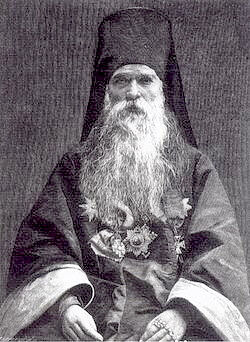 St. Gury (Karpov), Archbishop of Taurica The will of God, ever good and perfect, is entirely directed towards restoring and strengthening the ability to live an eternally blessed life within us. To fulfill the will of God means to make it easier to achieve our desired goal; conversely, to evade fulfilling the commandments, to break them, is to destroy our own happiness. This is clear to everyone. But does everyone know that the will of God can be violated not only through frivolity, or being carried away by passions, or hardened opposition, but also through a painfully developed sense of piety, through a special, distinctive zeal to please God? Every violation of the will of God is bad, but the latter kind is especially unfavorable.
St. Gury (Karpov), Archbishop of Taurica The will of God, ever good and perfect, is entirely directed towards restoring and strengthening the ability to live an eternally blessed life within us. To fulfill the will of God means to make it easier to achieve our desired goal; conversely, to evade fulfilling the commandments, to break them, is to destroy our own happiness. This is clear to everyone. But does everyone know that the will of God can be violated not only through frivolity, or being carried away by passions, or hardened opposition, but also through a painfully developed sense of piety, through a special, distinctive zeal to please God? Every violation of the will of God is bad, but the latter kind is especially unfavorable.
In the case of the former, there is hope that one day the conscience will awaken, will bring you to reason. In the case of the latter, the conscience itself disposes and incites a man to violate the will of God with the idea that he is thereby serving God. Let us beware, beloved, of this treachery of the father of lies! In the zeal to obey God, one must not add his own reasoning to the known will of God or be deceived by any conceptions of the mind, until grace illuminates and enlightens his vision; we must firmly remember the rule of Christian wisdom bequeathed to us by the Fathers, that good is not good if not done in a good way. That is, if we want to do what is pleasing to God, we must do it in a manner pleasing to Him—according to the exact meaning of the commandment—neither adding nor subtracting. Otherwise everything is in vain.
Let us remember Saul, the king of Israel. The Lord sent him to destroy the Amalekites for the evil that the Israelites suffered from them on their way out of Egypt, and ordered that he destroy everything—the people, their flocks, and all their possessions. Saul acted according to the commandment, destroying everything that he found among the Amalekites. He left only a few of the large and small cattle—not as spoils, but for a sacrifice to God.The deed was seemingly not entirely bad. However, how did the Lord receive this zeal? The Prophet Samuel said to Saul in the name of God: “Did you not know that obedience is better than the best sacrifice, that disobedience is the same as idolatry, that resistance is the same as sorcery? Therefore, know that as you have despised the will of God, so the Lord will humiliate you: You will no longer reign” (cf. 1 Kg./1 Sam. 15:26). Such punishment will seem severe, but it’s perfectly just.
The Lord, as All-wise and All-good, of course knows better than us what is useful to us and in what form; and if He commands anything, then it’s only out of a perfect desire for our own good. To change the meaning of the commandment, to even slightly tilt it, to adjust it to our taste—would that not mean to resist, to prevent us from doing good? Not to mention insulting the majesty of the Lawgiver. In the matter of salvation, our mind is certainly not the leader; it’s not even a light, but rather a lamp that still needs the light of the law of God. We must use our mind only to understand the will of God, so as not to deviate from the precise fulfillment of what is pleasing to God. The will of God should be the inspiring principle and the ultimate goal of our activity.
In the matter of salvation, it’s not unimportant whether we do something simply, as a good deed, or as a commandment, as the will of God. Of course, the deed in and of itself is the same in either case, but its significance, its relation to pleasing God, to spiritual salvation is substantially different. We are saved by faith in the redemptive merits of Jesus Christ; our good deeds are necessary only as proof, as an expression of our faith, and they contribute to our salvation only to the degree of our faith, that is, to the degree of our obedience to the will of God. Our good deeds can be compared with bank notes that conveniently substitute as coins for us. This piece of paper, in and of itself—what is it worth? But as soon as the bank’s seal and the manager’s signature are added to it, then its value is undoubted, and it’s accepted everywhere with the value affixed to it.
So it is with our good deeds: By themselves, they’re worth nothing, but as soon as we place the seal of obedience to the will of God upon them, the value of that priceless Blood that was shed for the purification and salvation of the world, then by virtue of the thought and name with which they are imbued and sanctified, they acquire value, and sometimes quite a high value! For a man who desires to walk the straight and faithful path to salvation, it’s very important that his every work should bear the character of obedience to the will of God, that his every activity should reflect the high standard of the obedience of the Savior, as a clear river in clear and calm weather reflects the sky with all its adornments.
Of course, the good that is done without the thought of thereby fulfilling the will of God is still good. This good is an honor and adornment for the man to whom it belongs; but a good deed that is not sanctified by grace is therefore a good deed within the bounds of corrupt nature. It won’t outlive the man, it won’t pass with him into eternity; it’s a beautiful, luxuriantly developed, but infertile flower. Among the multitude of soul-disturbing plants, it’s pleasant to look at, it’s nice to smell its fragrance, but only while it’s in bloom. The time of its blossoming will pass, its petals will fall off, and both its beauty and fragrance will disappear! It won’t give fruit, won’t nourish, won’t strengthen, won’t refresh anyone’s life! Such is virtue outside of Christ! This is human virtue. According to the Apostle, such good works, like hay or firewood cast into the fire, will be burned up and will not stand at the judgment of God (1 Cor. 3:11-16). For a good work to be truly good, to serve as an adornment here and as a justification and glory for a man beyond the grave, it must be done precisely and solely because God desires it!
Let us abbreviate our homily with an explanation: How can we know the will of God? The closest, most immediate herald of God’s will is the voice of our conscience. So, do you want to know the will of God? Pray to the Lord that He Himself might tell us the way wherein we should walk and teach us to do His will (Ps. 9:11, 8-10). While praying, hearken to the voice of your conscience; do not drown it out with the noise of the passions; do not weaken it with stubborn resistance, and the will of God will be revealed to you.
To help the conscience itself, that is, to make it more sensitive and therefore a more capable and faithful guide, attentively read the word of God, go to church more often, and diligently study the ascetic labors of the saints. Then the conscience will be enriched by the spiritual experiences of others; it will be enlightened, receive a special power, and become stricter and more insistent in its demands.
But even with these means, it’s never superfluous, and sometimes absolutely necessary to consult more often with your spiritual father as a man blessed for this work. In the name of God, submit your will to him; receive his counsel with faith and fulfill the will of God revealed to you directly by God Himself; then, according to the word of the Lord: He that heareth you heareth Me (Lk. 10:16)—you can be firmly assured that the fruit of the spiritual life is ripening within you, that you, as a true child of obedience, are walking the straight path to eternal beatitude (1 Pt. 1:14).
Amen.
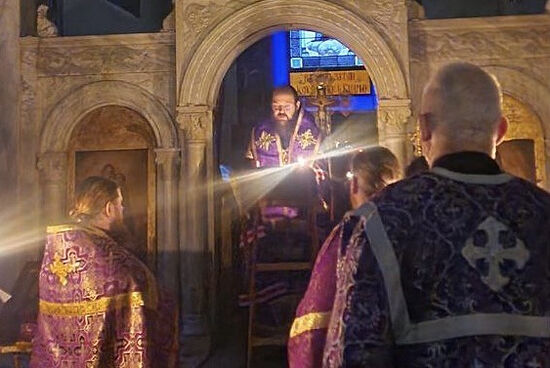
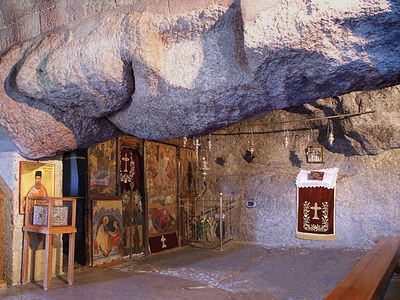 Revelation: Removing the VeilThis revelation was given by God to the Apostle John because we needed to know it.
Revelation: Removing the VeilThis revelation was given by God to the Apostle John because we needed to know it.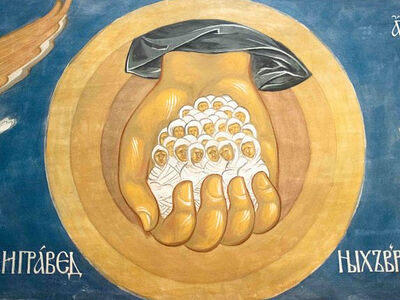 If Christ Is With Us, Death Is DefeatedThe book of Revelation teaches us a lot, especially when we begin to carefully delve into its words, when we see how Christ holds the world in His hands and acts with wisdom in all things.”>Part 2
If Christ Is With Us, Death Is DefeatedThe book of Revelation teaches us a lot, especially when we begin to carefully delve into its words, when we see how Christ holds the world in His hands and acts with wisdom in all things.”>Part 2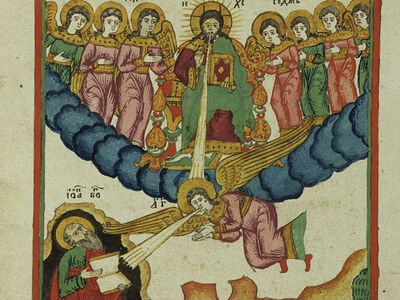 Why Did the Lord Leave Man the Book of Revelation?Only the people of God, the saints, can receive revelations from God, and only they can interpret them, because a revelation, words from God, is given from God, from the Holy Spirit.”>Part 3
Why Did the Lord Leave Man the Book of Revelation?Only the people of God, the saints, can receive revelations from God, and only they can interpret them, because a revelation, words from God, is given from God, from the Holy Spirit.”>Part 3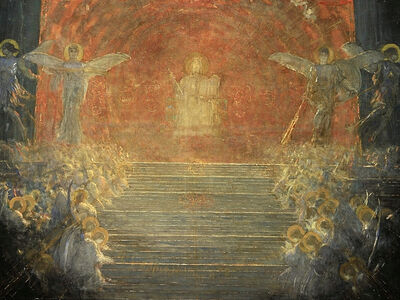 For the Time Is at Hand…We have to understand that God acts outside of time, and the events of Revelation don’t relate only to the end times.”>Part 4
For the Time Is at Hand…We have to understand that God acts outside of time, and the events of Revelation don’t relate only to the end times.”>Part 4 Blessed Is He That Readeth…Christ sent the revelation through an angel to His servant the Apostle and Evangelist John, who conveyed the word of God and the testimony of Jesus Christ about what he saw and heard.”>Part 5
Blessed Is He That Readeth…Christ sent the revelation through an angel to His servant the Apostle and Evangelist John, who conveyed the word of God and the testimony of Jesus Christ about what he saw and heard.”>Part 5 He Hath Made Us Kings and PriestsA man who is close to God, my dears, truly feels like a king—he has no need of anything. At the same time, he may have absolutely nothing.”>Part 6
He Hath Made Us Kings and PriestsA man who is close to God, my dears, truly feels like a king—he has no need of anything. At the same time, he may have absolutely nothing.”>Part 6 John, Our Companion in Tribulation, and in the Kingdom and Patience of Jesus ChristOne of the most significant and frequent references to the Holy Trinity is in the text of Revelation.”>Part 7
John, Our Companion in Tribulation, and in the Kingdom and Patience of Jesus ChristOne of the most significant and frequent references to the Holy Trinity is in the text of Revelation.”>Part 7 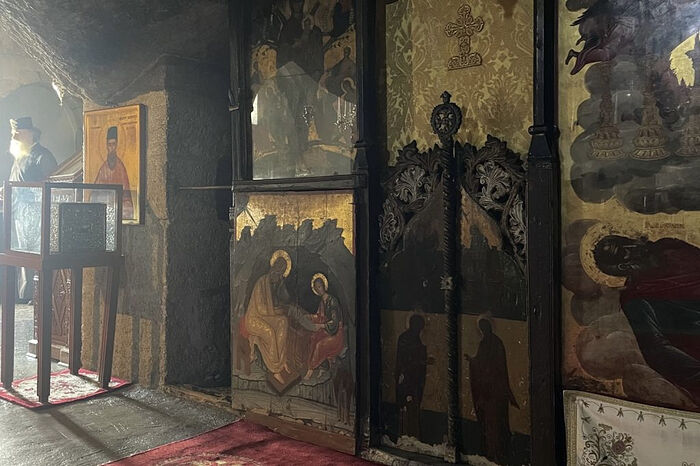
 Holy Prophet Daniel Among the chosen youths Daniel had three friends: Ananias, Azarias and Misail. All four steadfastly preserved their faith in the one true God and together refused to eat the king’s food for fear breaking one of Moses’ laws. They asked their overseer to give them only bread and vegetables, but the overseer was afraid that they would become thin and he would be made to suffer the king’s wrath. Daniel persuaded him to make a test and allow them to observe this regimen for ten days.
Holy Prophet Daniel Among the chosen youths Daniel had three friends: Ananias, Azarias and Misail. All four steadfastly preserved their faith in the one true God and together refused to eat the king’s food for fear breaking one of Moses’ laws. They asked their overseer to give them only bread and vegetables, but the overseer was afraid that they would become thin and he would be made to suffer the king’s wrath. Daniel persuaded him to make a test and allow them to observe this regimen for ten days. 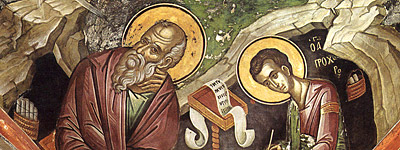 St. John the Theologian
St. John the Theologian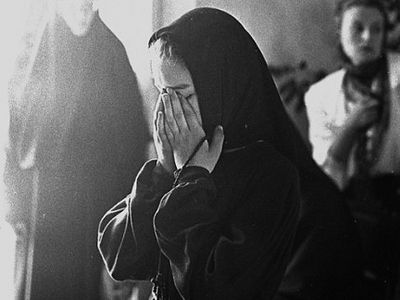 On the Fear of GodRepentance is the ship, and fear is its rudder, while love is its divine harbor
On the Fear of GodRepentance is the ship, and fear is its rudder, while love is its divine harbor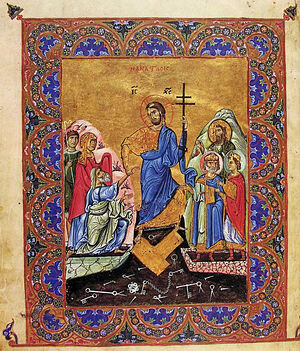
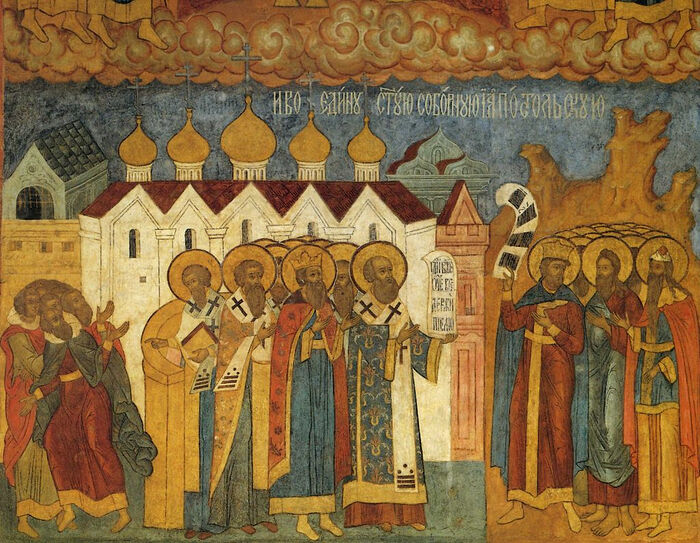
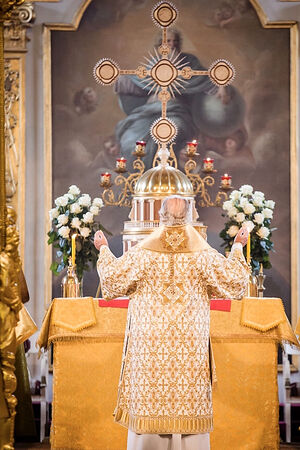
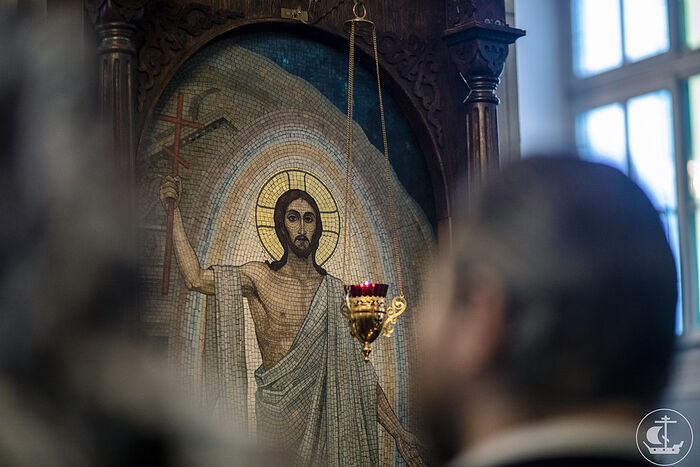
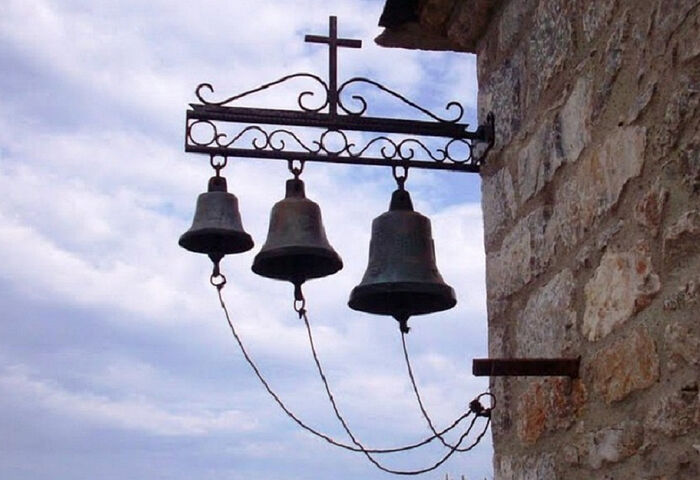
 Greece becomes first Orthodox country to legalize gay marriageGreek Parliament voted late last night, despite the fierce and persistent resistance from the Church and society, to legalize gay marriage and adoption by gay couples.
Greece becomes first Orthodox country to legalize gay marriageGreek Parliament voted late last night, despite the fierce and persistent resistance from the Church and society, to legalize gay marriage and adoption by gay couples.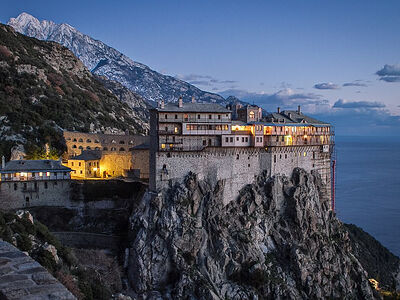 Mt. Athos: We are opposed to any form of marriage that contradicts the GospelAmidst the controversy surrounding the Greek government’s proposal to legalize gay marriage and adoption by same-sex couples, the Holy Mountain has raised its voice.
Mt. Athos: We are opposed to any form of marriage that contradicts the GospelAmidst the controversy surrounding the Greek government’s proposal to legalize gay marriage and adoption by same-sex couples, the Holy Mountain has raised its voice.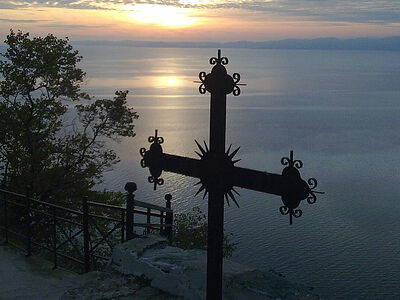 Athonite abbots and Sacred Community: Gay marriage bill threatens all of mankind and creationAnother statement has come from the Holy Mountain concerning the controversy over the Greek government’s plans to legalize gay marriage and adoption by gay couples.”>here) on the matter before the vote was taken in February.
Athonite abbots and Sacred Community: Gay marriage bill threatens all of mankind and creationAnother statement has come from the Holy Mountain concerning the controversy over the Greek government’s plans to legalize gay marriage and adoption by gay couples.”>here) on the matter before the vote was taken in February.  Greece: Corfu now the third diocese to excommunicate local deputies who voted for gay marriageFollowing in the footsteps of the Metropolises of Piraeus and Kythira, the Metropolis of Corfu has resolved to excommunicate local deputies who voted for gay marriage last month.
Greece: Corfu now the third diocese to excommunicate local deputies who voted for gay marriageFollowing in the footsteps of the Metropolises of Piraeus and Kythira, the Metropolis of Corfu has resolved to excommunicate local deputies who voted for gay marriage last month.